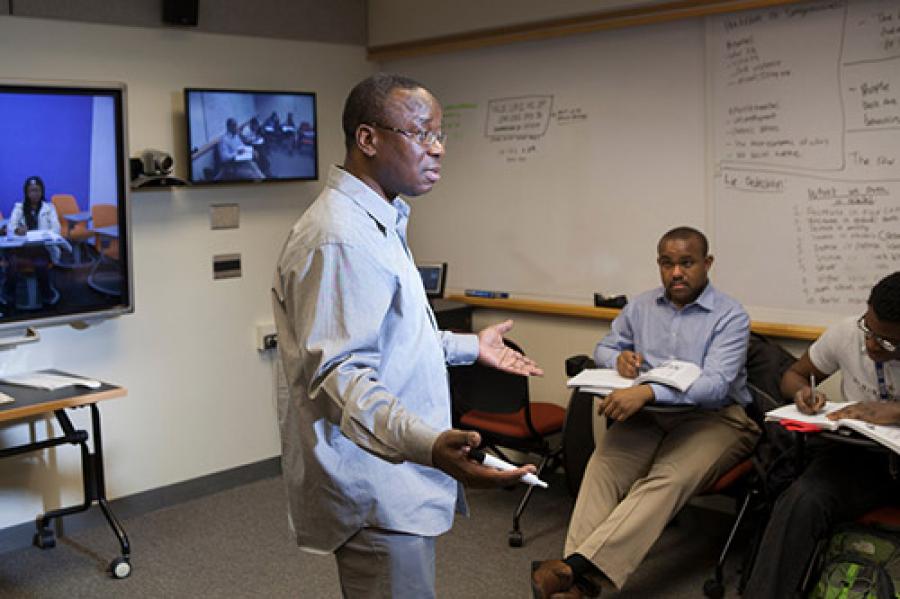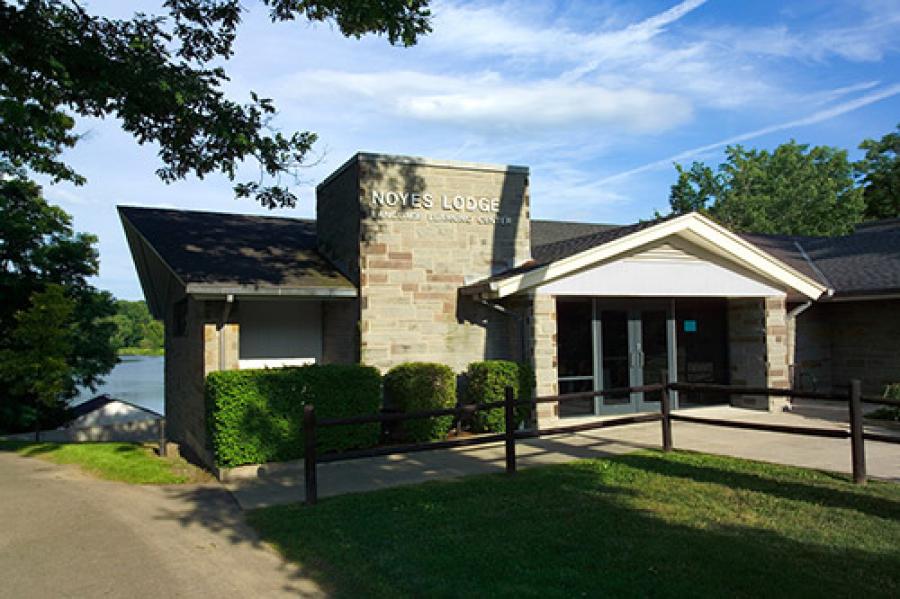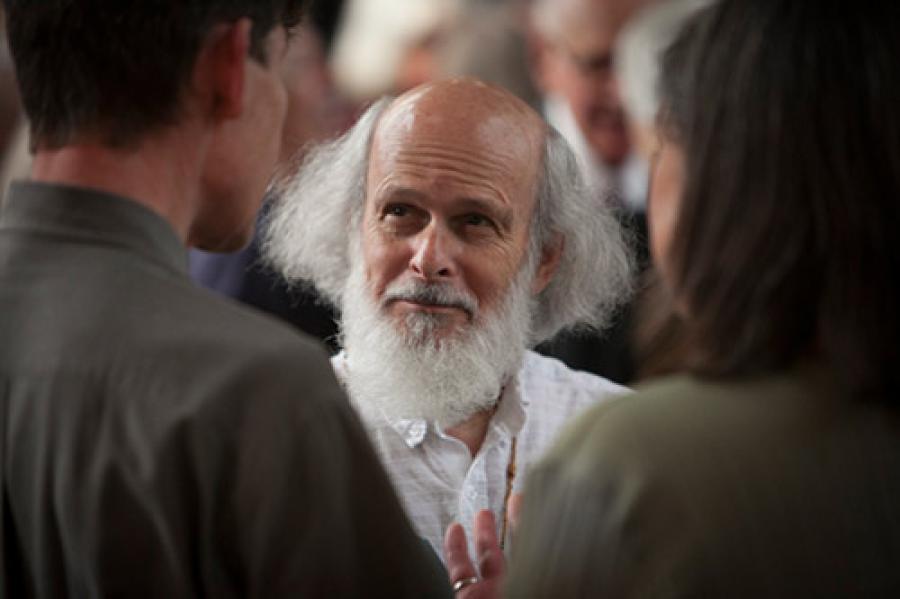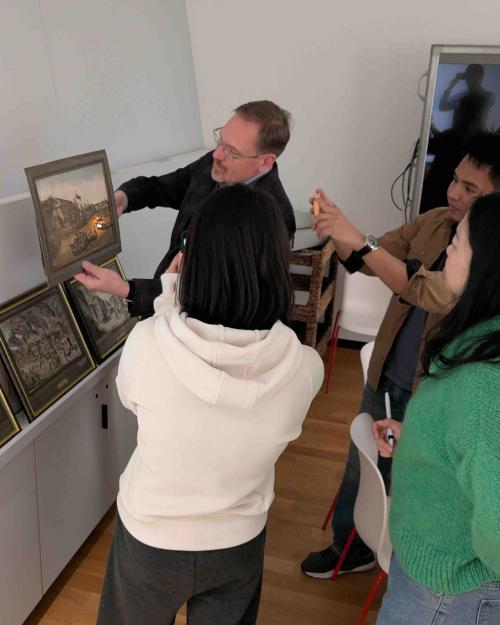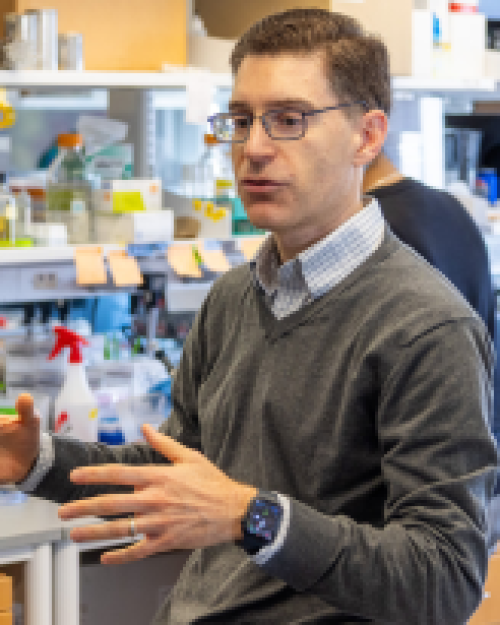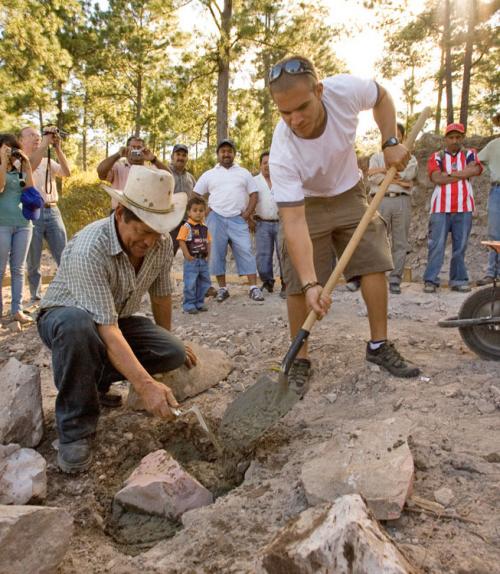Tanzania, Honduras, Thailand…Cornell students span the globe in public engagement projects and study abroad. Last year, students working overseas to provide safe drinking water, manage flooding, and provide support in hospitals had an extra boost from Jumpstart courses, a new kind of language program designed just for them.
The one-credit, one-hour-a-week Jumpstart courses enable students going abroad during the summer or winter break to feel prepared for the countries they’re visiting, says Richard Feldman, director of the Language Resource Center (LRC). “With more than 40 languages offered by the College of Arts and Sciences, students across the university can get a thorough grounding for study abroad, but with short-term projects students often haven’t had a chance for in-depth language learning.”
According to Cornell Abroad, 2,208 Cornell students traveled to 108 countries in the 2013-14 academic year to study, conduct research or participate in a faculty-led experience as part of a Cornell program, so the LRC Jumpstart courses fill a critical need for the increasing number of Cornell students going abroad.
“The recent increase in short-term study at Cornell, such as winter break study abroad, has brought about the need for these courses," notes Feldman, "as students going on full semester or year programs generally have prepared with language study in advance."
Like Cornell’s more traditional language programs, the Jumpstart curriculum recognizes that vocabulary and grammar are only one component of language education. The courses also offer a cultural orientation to allow students to feel more comfortable and be able to behave in more culturally appropriate ways than they might have been able to without instruction. This includes an emphasis on being aware of cultural differences and cues.
“The cultural introduction helped us avoid social faux pas and feel more comfortable interacting in Honduran society,” says David Gold, a graduate student in engineering, who traveled to Honduras with AguaClara, a multidisciplinary program that designs sustainable water treatment systems committed to long-term environmental, social, and economic sustainability.
“From observing Tanzanian mannerisms and listening to how they spoke I was able to pick up some cues that I would not have had I not spoken Kiswahili,” reported one student. “For example, I did not know that after every meal I was expected to thank the mama of the house for the food. After noticing that everyone else said their thank yous I too began to do the same. Had I not picked up on that I would have appeared rude, if not unappreciative.”
The students studying Kiswahili were preparing for the Global Health, Development, and Policy Issues in Tanzania study abroad course. While in Tanzania, the students lived with host families, studied at the local college, and spent four weeks volunteering with an NGO, hospital or government agency on a project related to global health. Language and understanding the culture were critical to their comfort and effectiveness.
“There are many simple things that one needs to understand just out of pure safety and respect for those in another country that if I would not have taken this course, I would not have learned,” says Mariela Garcia Arredondo '16. She studied Thai in preparation for a Global Environmental Service Learning course, Global Citizenship and Sustainability: Social Dimensions of Water Resources Management in Thailand. Students on the course worked with community partners in Thailand to conduct research to better understand experiences with flooding and how to build long-term resilience and adaptation.
Even if I couldn't pronounce the words well, I at least made the Thai students laugh when I tried. This helped me to make friends with the Thai students very quickly. Knowing some Thai also allowed me to initiate conversation with the people I met; one of the most interesting people I spoke to on the trip was actually a man who makes roti (flatbread) at a street stand.
Feldman notes that the goal of Jumpstart courses isn’t for the students to master the language—“you don’t learn a language in 14 hours. The goal is to give students an idea of the linguistic issues involved and to make them aware of the assets they can call on, like cognates” (words that look and mean the same in English and the other language).
The program gives students some functional “chunks,” words connected together that needn’t be analyzed to be used and understood, such as the Spanish “muy bien” (very good). These “chunks” are critical tools for students.
Happiness Patrick Bulugu, a senior lecturer in Africana and instructor of Kiswahili, taught students greetings according to age, relationship, and setting. “The different greetings are very important in Swahili culture because they build good rapport, especially for foreigners,” she explains. “This was crucial to jump start students, as they were to live with local families.”
I believe that language helps to allow for a deeper connection with different cultures and going to Thailand with some knowledge of the native language aided me in achieving that greater connection. Gail Fletcher ‘17
Arredondo says her Thai class taught her how to communicate simply and ask necessary questions, helping her in critical moments such as when she was lost and had to describe where she was staying and when she lost her bike key and had to ask maintenance staff for help. The Jumpstart instruction also helped her locate the right kind of medication when she needed it.
The specialized vocabulary the students learned during Jumpstart courses was also important. Students taking part in the annual AguaClara winter break trip to Honduras were able to learn Spanish engineering terms specific to the water purification systems they’d been working on at Cornell and which are being installed across Honduras to provide residents with clean, safe water. Since interacting with AguaClara plant operators is an essential aspect of the trip, the more common language the students shared, the easier interactions could be.
Language Skills for Campus and Beyond
The alternative to learning the language you’ll need overseas is, of course, speaking English. But even that, it turns out, is a skill that must be taught.
“The problem with Americans abroad is they don’t know how to speak English to non-Americans,” explains Feldman. “They speak in idiom, as fast as they want, and feel it’s easy. But there’s an ethic and a style to speaking to non-native speakers; you have to help and do extra work – it’s a collaborative operation.”
And with the globalization of Cornell’s campus -- the Class of 2019, Cornell’s most diverse ever, includes students from 79 different countries – knowing how to best communicate with non-native English speakers is a skill worth having, even if you never go overseas.
Struggling with this language helped me to be a better speaker to others. In another language you can’t express everything you want, and you become child-like. [So] what does it take to make it easier for others to understand me?
As one student who studied Thai explained, “Not everyone will be responsive to talking with an American, but if you use the Thai you know, speak slowly when you have to revert to English, and listen patiently to their English, then most people will open up quickly.”
Unlimited Languages
Although the College of Arts & Sciences offers instruction in more than 40 languages, the possibilities for language learning aren’t limited by that number. The LRC’s Shared Course Initiative increases access to less-commonly taught languages through videoconferencing and other distance learning technologies, in partnership with Columbia and Yale Universities. This program brings the possibility of studying eleven more languages to the Cornell curricululum, such as Hungarian, Tamil, Ukrainian and Zulu.
Adelou Ademoyo, senior lecturer in Yoruba language and culture (ASRC), teaches a class that is part of the Language Resource Center's (LRC) Shared Course Initiative
Direct independent language study is also an option. Feldman recently worked with a graduate student in the field of ornithology who needed to learn Mongolian to do research there. When you have a motivated student, “it works well,” says Feldman.
Another Language Resource Center initiative, supported by the Language Education Council and with funds from the Vice-Provost for International Affairs, is Foreign Language Across Curriculum (FLAC), which supports students’ use and expansion of foreign language skills by adding a foreign language section to a regular course. The FLAC program offers discussion sessions that link content knowledge with language acquisition, offer insights of foreign cultures to area studies, provide experiences of analyzing texts in their original language, deepen technical and content-specific vocabulary, and aide in the preparation for study abroad and outreach programs.
Courses offering FLAC sections have included Perspectives on the Caribbean, Comparative Politics of Latin America, and Brazil: Many Countries, One Nation. Another FLAC initiative helped Cornell's Wind Ensemble members practice Spanish in preparation for their trip to Costa Rica to share musical expertise with disadvantaged students.
Language Resource Center
The Language Resource Center, a unit in the College of Arts and Sciences, supports language learning and teaching across the entire university. Its physical language lab, located in Noyes Lodge, offers a welcoming environment: students using the LRC’s facility can practice vocabulary while overlooking the beautiful Beebe Lake falls.
Along with the traditional study carrels, the LRC operates audio and video production and videoconferencing facilities and hosts Web Audio Lab, an extensive on-line language resource. The LRC also works with teachers to develop audio and video teaching materials and sponsors special events each year for college and K-12 language teachers.
Web Audio Lab overhauls foreign-language instruction
Web technology has changed the way Cornell students study a foreign language, allowing them to use their own computers to practice and giving them more control over the pace of instruction.
Slava Paperno, senior lecturer, Russian
Web Audio Lab (WAL), an application created by Russian language teacher Slava Paperno with help from staff members of the Academic Technology Center and the Language Resource Center, allows students to record their responses on their own computers and and have them automatically uploaded for teacher review. The application allows students to efficiently practice listening and speaking on their own in numerous languages, including Spanish, Japanese, Zulu, Russian, Chinese, Yoruba, Tamil, Bengali and French.
"Back in 2003, I thought we were just building a replacement for language lab tape recorders: they were dying, and the Russian teachers were tired of walking around with stacks of students' cassettes,” says Paperno. “But the project took on a life of its own, and it just won't stop. Version 3 moved it online, and now version 4 is all about mobile devices."
WAL’s Web interface offers important features not available on many other language applications, such as control of the pause length for audio recording and links to grammar explanations for the lessons. Teachers have options that range from simply verifying that work has been done, to spot checking a few student responses, to listening to and commenting on every recording. They can then send text or audio comments back to the student.
The application has become so ubiquitous that “a wal” is used as a noun by language teachers at Cornell. “We see it in project proposals and hear it in presentations,” says Paperno.
In a survey, students praised WAL’s versatility and said the pronunciation and fluency practice made a big difference, especially the ability to receive feedback from teachers. Wrote one student, “WAL is probably the best language-learning tool I've ever used.”

